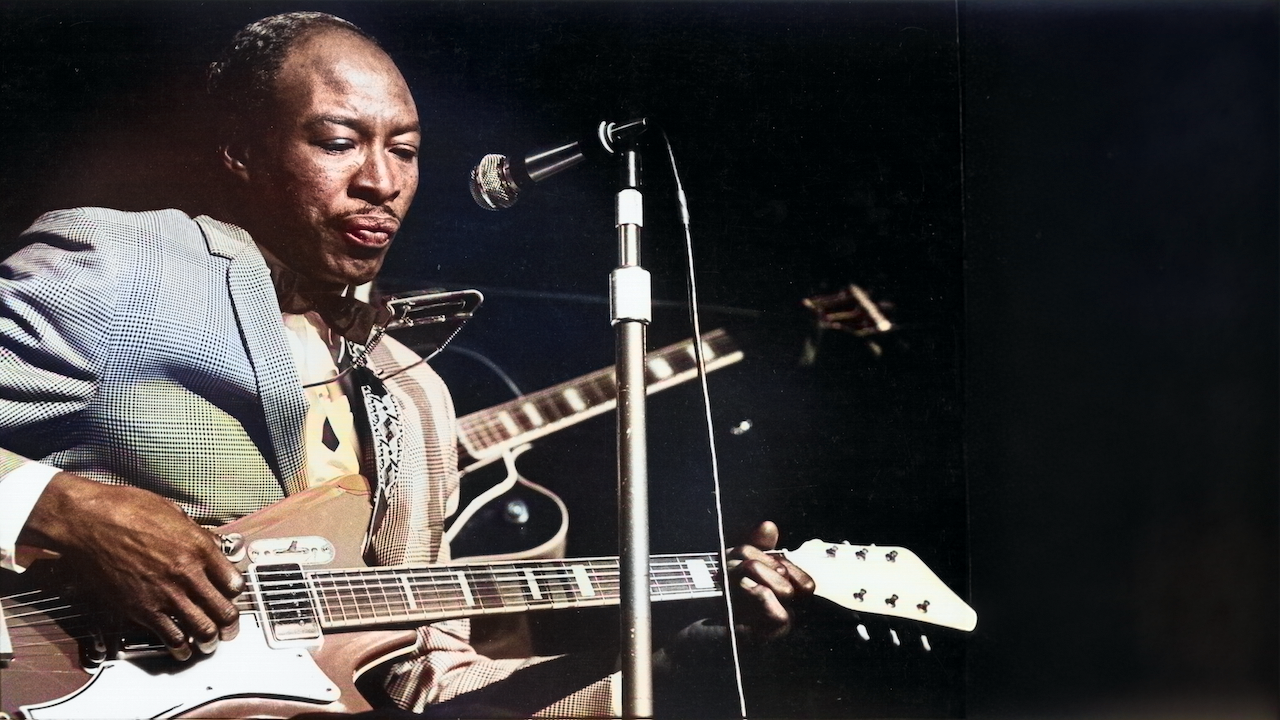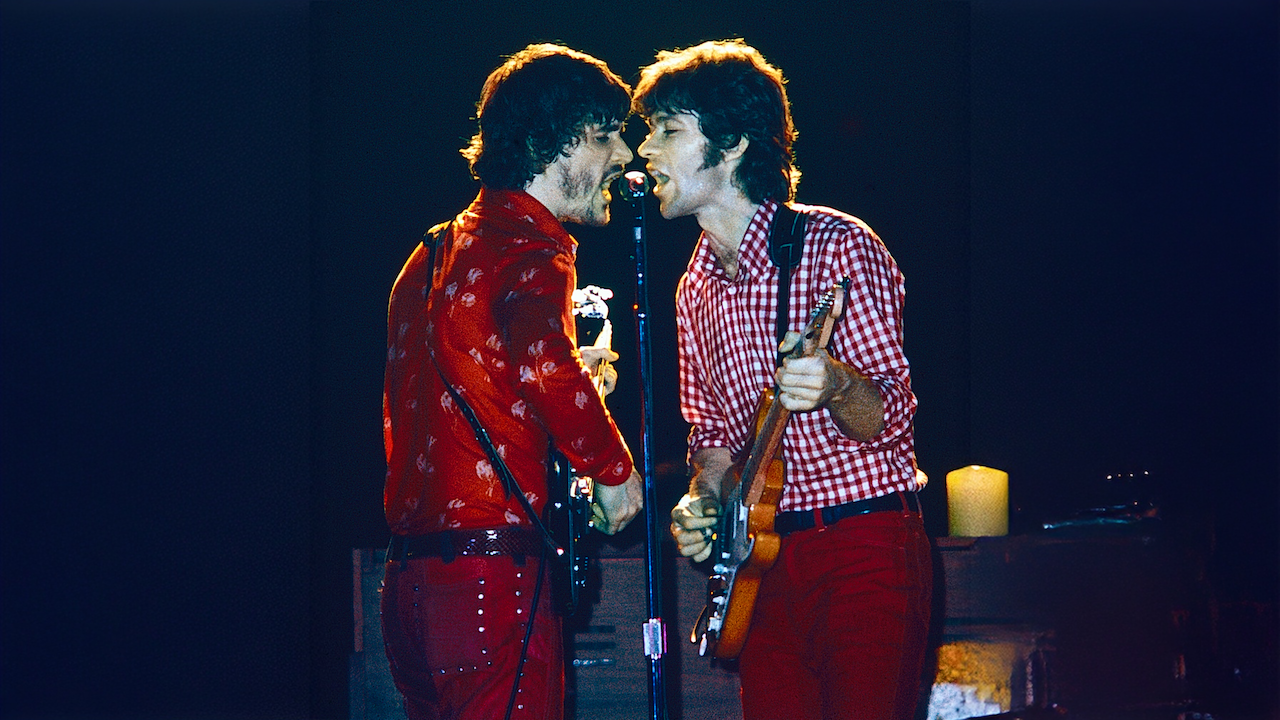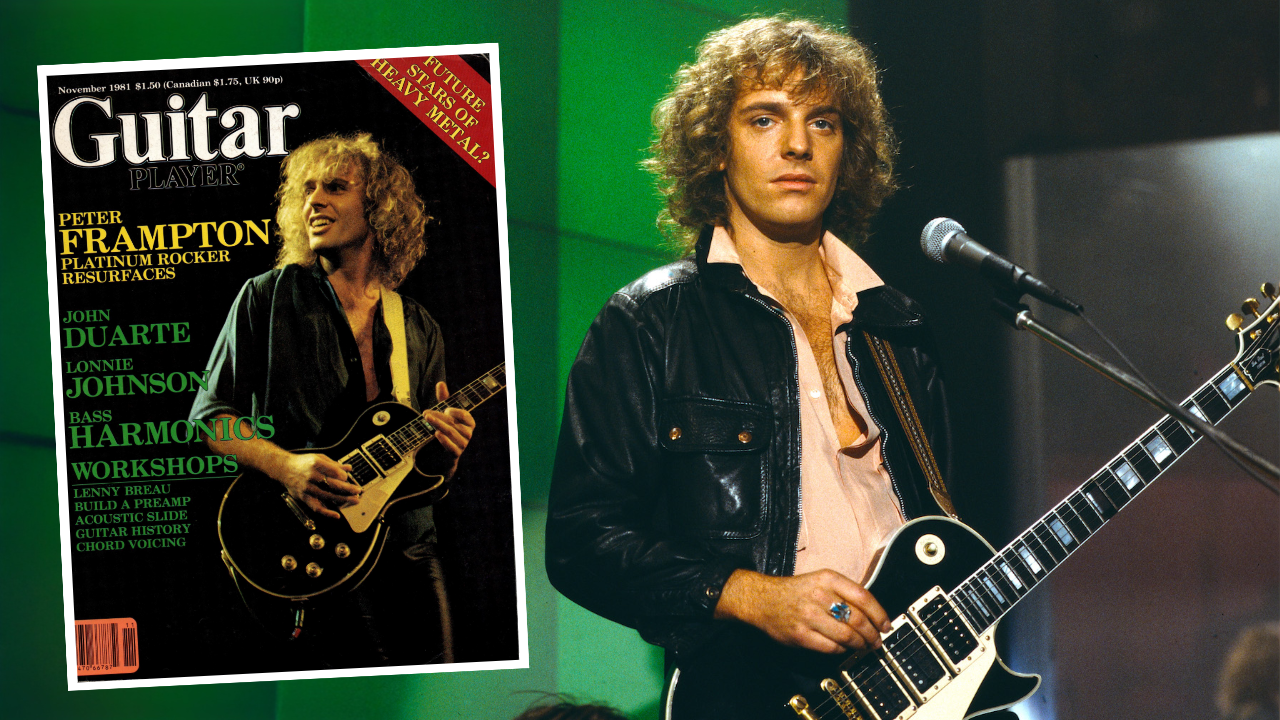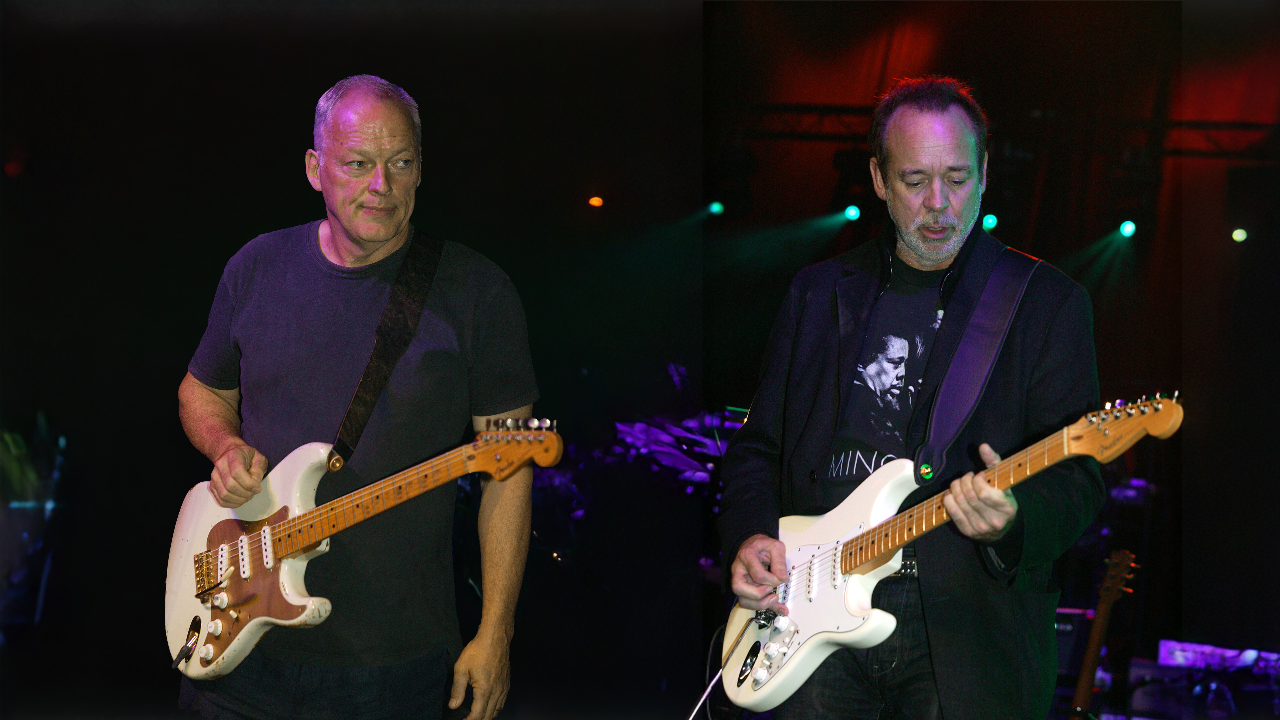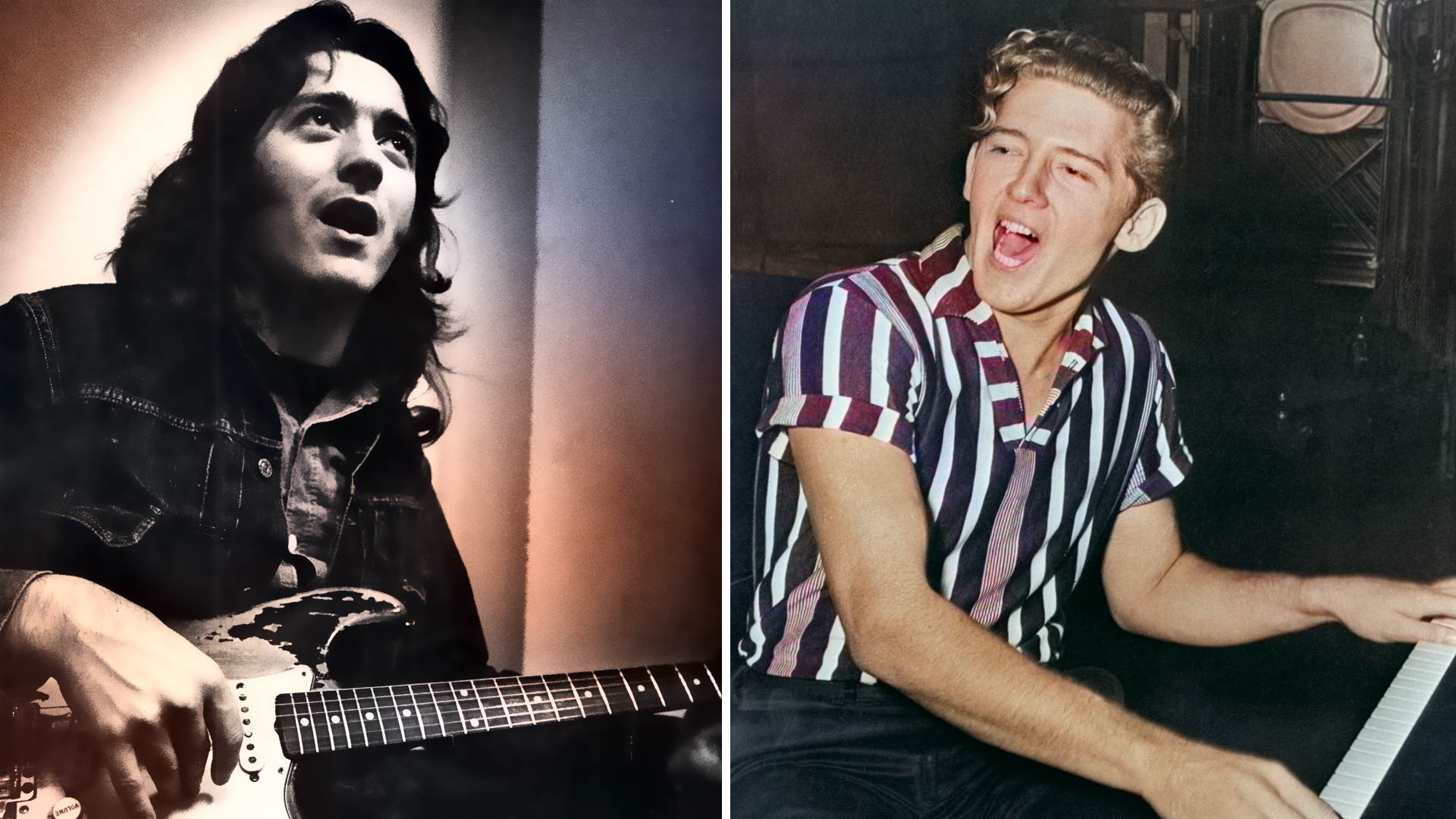“The minute I figured out some alternate tunings, it was like the sky opened up. I even had two double-necks with capos and alternate tunings”: Rival Sons' Scott Holiday shares tips to help players get out of ruts
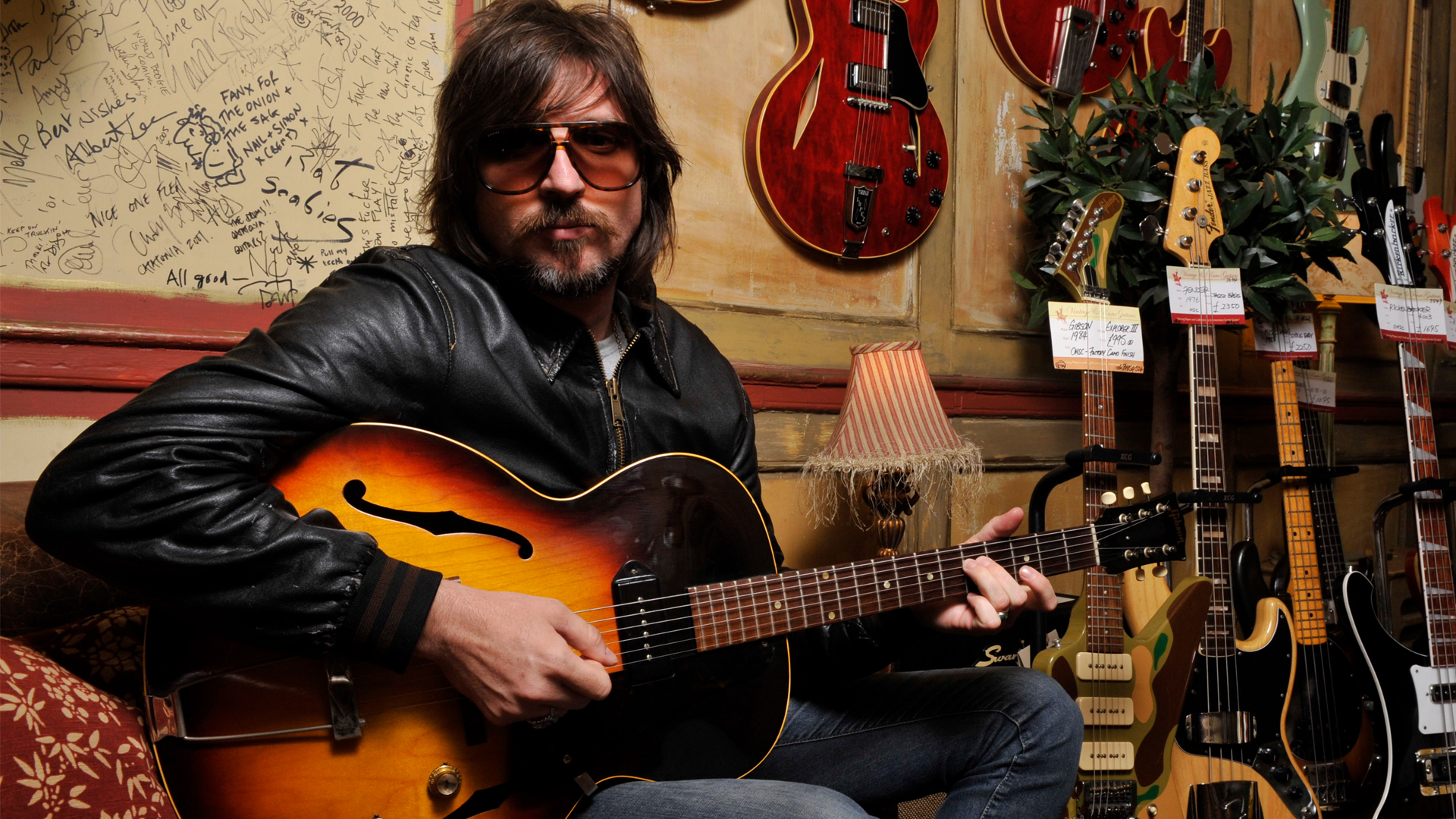
Rival Sons guitarist Scott Holiday recalls a conversation he had early in his career with an older, more experienced musician. “I said to him, ‘I don’t know if people are going to get the music I’m making,’” he says. “I was sort of questioning everything. ‘Is what I’m doing going to work? Will it ever become popular?’”
The other musician looked Holiday in the eye and gave him a piece of advice that served him well throughout the years. “He said, ‘You simply have to love what you’re doing. If you do that, you’ll never have to worry about finding your audience. They will find you.’”
It was a life-changing moment for Holiday, who has, over the course of nine blistering albums with Rival Sons, established himself as one of the most creative and dynamic guitarists of his generation. “I take our audience very seriously, but I don’t serve them. That’s how the whole band operates: We serve ourselves. We make music that we feel, and that’s the relationship we have with our fans. If we tried to cater to the audience, it would be a quick or slow death. It just wouldn’t work.”
With that in mind, Holiday — who plays a range of electric guitars by Gibson, Fender, Gretsch and Kauer — has some sage advice of his own for fellow guitarists. “I’m not really one for teaching people theory, and there’s lots of other players who are better at that than me,” he says. “But I do have some thoughts on the business and some ideas about making music that might come in handy. A few of them might be a little esoteric, but they’re the kinds of things I like to tell young guitar players who come to our shows.”
Keep Your Assets
“Whenever you can, try to make sure you can keep your assets. By that I mean your publishing, your recordings, your merchandising and the money you make from touring. There are people who want to dip into each and every one of those revenue streams. When you’re just starting out, you’re probably eager to sign any deal that is presented to you. I get it. But don’t be so quick to sign a deal, because you could be giving away the rights to your music for a long, long time, and it might not always be possible to get them back.
“Rock and roll isn’t the moneymaker it once was; it’s probably closer to jazz now that pop and hip-hop and country have taken over. And, of course, recorded music — meaning albums — doesn’t sell like it used to. Given all that, it’s crucial that you safeguard yourself, and ownership of your music and merch is key.
“Traditionally, whenever the big labels used to sign an artist, they’d own the artist’s albums for years and years — sometimes forever. If you’re in a position to sign with a major, or even an independent, it’s better to license your masters for a brief period of time. Let’s say you sign for two albums — at the end of those two records, those masters are yours. Same thing with publishing: You can grant somebody temporary license, but it should eventually come back to you. As far as merch, try to hold on to that, because it could be a huge part of what you make on the road. For the most part, we’ve kept everything, and we own everything. Not every company is going to go for this, because they want as much of the pie as they can get. Just be careful. This is your only career.”
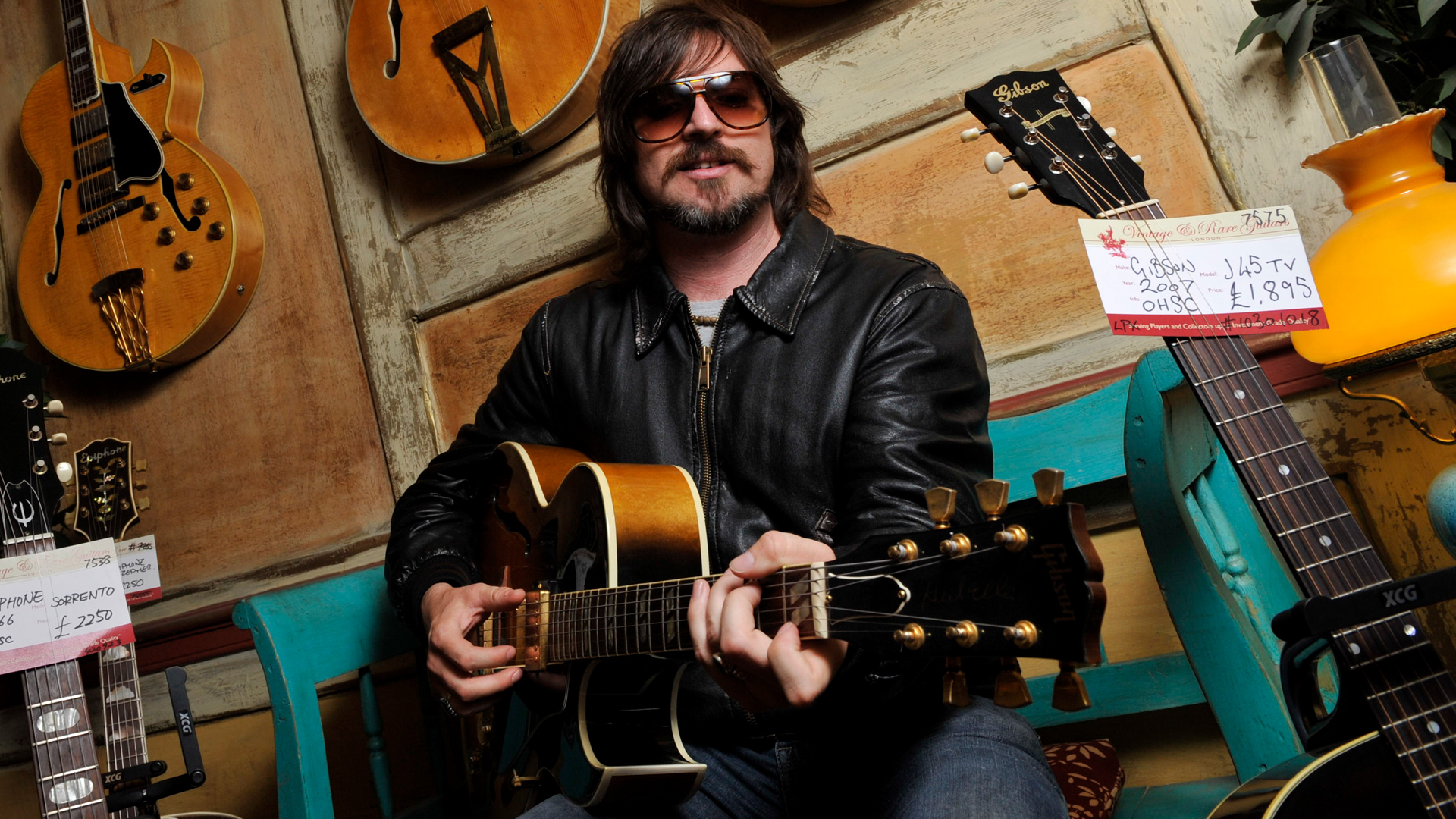
Get Out of a Rut with Alternate Tunings
“If things are sounding the same and you’ve hit a creative wall, try alternate turnings. I’m all about DADGAD, open G, open A, open C — all sorts of different tunings. There’s no rule that says you can only play guitar in standard tuning. I love to tune my guitar a new way and slide my fingers around to see what happens. I can do that for hours. As guitarists, we have a tendency to play the same patterns in these box shapes — we all do it — but when you’re in a different tuning, your fingers can’t stick to the same routine. It’s strange at first, but before long it becomes exciting.
“I got into alternate tunings early on. I think I was 12 when I got into slide playing, and I listened to guys like Muddy Waters. Before then, I already felt as if I had hit a wall; I was like, ‘Something isn’t adding up.’ The minute I figured out some alternate tunings, it was like the sky opened up, and I started to take it further and further.
“It drives my guitar tech a little crazy. On our last tour, I brought 10 guitars out with me, and quite a few of them had alternate tunings. I even had two double necks with capos and alternate tunings. But they sure sounded great.”
Listen to the Melodies in Your Mind
“You don’t always have to be sitting with a guitar to land on a musical idea. I hear music in my head all the time whether I’m in the city or walking around in nature. There are sounds and rhythms all around you — natural melodies. I love to tune in and listen for anything that can sound like it could be a musical idea. Sometimes it’s subconscious and you don’t even know it’s happening; you find sometime stuck in your head, and you have no idea where it came from. The important thing is to capture that moment whenever it comes to you. When that happens, I’ll try to sing it to myself so I can remember it.
“Now that we’ve got phones that we carry around with ourselves, it’s much easier to record ideas that come to you in everyday life. I’ll hum or sing a melody to myself, and then I’ll sit down with my guitar and try to play it.
“When we were making our album Great Western Valkyrie, I dreamed a melody. I woke up humming it — it was just a few notes, but I kept it in my head. I took a shower and kept singing it to myself, working out the cadence and the pitch. When I got to the studio, I said, ‘I’ve been humming this thing, and I know it’s something.’ I picked up the guitar and worked it out, and everybody in the control room went, ‘Wow, that’s incredible!’ Eventually, it became our song ‘Electric Man.’
“Not everything that you hear in your head is going to become a song. There are diamonds that are out of reach. But don’t torture yourself. Be easy on yourself. Just know, there are ideas floating around all the time. Great songs are made from feeling inspired and learning to trust your instincts, and ideas can happen when you least expect.”
Connect With Your Fellow Musicians
“We play notes. We play songs. But more than that, we’re playing with human beings that have their own energy and feelings, and they’re interpreting those feelings into music. I think musicians tend to play together by the book — ‘This is the way it goes. This is the way you should play it.’ We get frustrated when somebody in the group doesn’t play something just the way you hear it.
“On the other hand, maybe what they’re playing is the better idea, or at least it’s something you should consider before discarding it. With Rival Sons, we always make it a point to connect with one another. We want to be together. We want to lift each other up and make everybody feel good. It’s all about listening. Listen to the holes somebody leaves in — connect with that space. Be a good listener.
“Sometimes you get together to rehearse, and somebody isn’t in the right frame of mind. It happens — we’re all people. Instead of just powering through, take some time to talk it out. Lift that person up, find out what’s going on in his head. Maybe you have two hours to rehearse, but the better way to use that time is to talk as a group. If you only play music for 20 minutes, that might be a solid 20 minutes instead of just slogging it out. Don’t beat up on one another. If somebody says, ‘I’m not right to play today,’ let them go home and come back better tomorrow. Making music is a spiritual thing. People are special, and your connection to them is what matters.”

Do You — It Makes a Real Difference
“Be mindful of your intent when you make music. Create with purpose and consider the reason why you’re doing what you do. And don’t underestimate the audience. They can innately hear when something sounds authentic. It all has to start with you.
“Your tone, your riffs, every part you play — it’s all connected to being truthful. It’s like when you hear a singer you love; you probably respond to that singer because you believe every word they sing. They’re feeling it. They’re centered and they’re focused. The same is true for guitar players. You can tell when somebody is having a moment of realization on his instrument. It’s because he believes in what he’s doing, and from that belief, a moment of authenticity is created. It doesn’t have to be complex; most of the time, it can be something ultra-simple. But in there is a moment of truth, and you know it when you hear it.”
Get The Pick Newsletter
All the latest guitar news, interviews, lessons, reviews, deals and more, direct to your inbox!

Joe is a freelance journalist who has, over the past few decades, interviewed hundreds of guitarists for Guitar World, Guitar Player, MusicRadar and Classic Rock. He is also a former editor of Guitar World, contributing writer for Guitar Aficionado and VP of A&R for Island Records. He’s an enthusiastic guitarist, but he’s nowhere near the likes of the people he interviews. Surprisingly, his skills are more suited to the drums. If you need a drummer for your Beatles tribute band, look him up.
“Write for five minutes a day. I mean, who can’t manage that?” Mike Stern's top five guitar tips include one simple fix to help you develop your personal guitar style
"It’s like you’re making a statement. And you never know where it’ll lead." Pete Thorn shares the tip that convinced Joe Satriani he was the right guitarist for the SatchVai Band


